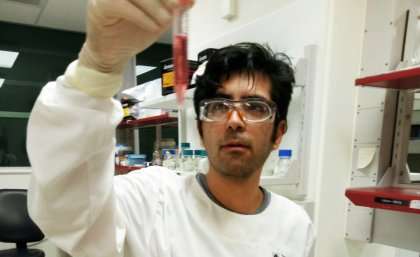The study found that the "key point" to cut off the path of cancer development!
Release date: 2017-07-07 Source: Noble YT-60 YT-60 Shenzhen Sunshine Technology Co.,Ltd , https://www.yatwinsz.com
Researchers from the University of Queensland have found that cutting off proteins produced by breast cancer cells can prevent cancer progression.
Dr. Iman Azimi, from the UQ Institute for Pharmacy and Research, said that when breast cancer cells stopped producing proteins called TRPC1, some important pathways in breast cancer progression were discontinued.
Dr. Azimi said: "We identified TRPC1 as a regulator of several pathways that are critical for breast cancer progression when activated by hypoxia.
"With the development of breast cancer, the supply of oxygen will decline, which is called hypoxia.
“This may cause breast cancer to become more aggressive and to resist the currently available treatments.â€
This new study helps identify potential new therapeutic targets for breast cancer progression control.
Dr. Azimi said: "This work is most relevant to women who will develop breast cancer in the future, as these studies may help develop more effective breast cancer treatments to combat existing treatments."
"This study has global significance because it provides researchers with a new understanding of how TRPC1 responds to hypoxia in breast cancer cells and how breast cancer cells metastasize.
The researchers hope that these results will affect breast cancer research and thousands of women who die each year from breast cancer.
Breast cancer deprives more than 2,500 women every year in Australia, and women with metastatic disease have a survival rate of less than 30%.
Despite significant advances in the development of new therapies, breast cancer still accounts for 15.5% of all cancer deaths among Australian women.
Dr. Azimi said: "We are very excited about these findings and our goal is to use future drug development studies to improve current therapeutic interventions.
Dr. Azimi completed the study from Professor Greg Monteith, a senior researcher at the UQ School of Pharmacy.
The study has been published in the Journal of Cell Science.
